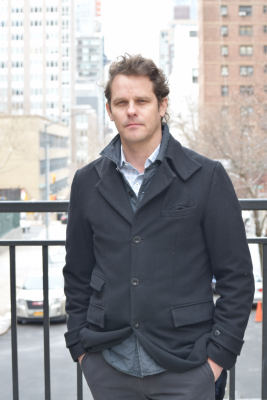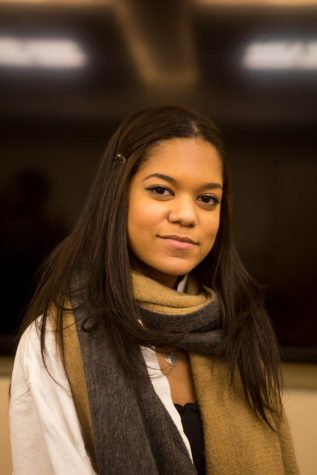Ad-Hoc Committee Fights For Change on Campus
Faculty members convened to form a committee on freedom of speech and accountability at Fordham (JON BJÖRNSON/THE OBSERVER)
May 7, 2018
The idea of attaining guaranteed free speech on campus has spurred many actions from members of the Fordham community this academic year. Controversies surrounding protest and free assembly inspired a faculty-drafted petition endorsed by more than 100 students and professors condemning the administration’s policies addressing student protests. The petition, and those who created it have additionally argued for necessity of “The Ad-Hoc Committee on Freedom and Accountability at Fordham,” a part of “the process of moving our community in the direction of ‘more speech.’”
In March, the committee outlined a list of resources and actions entitled “Promoting Freedom and Accountability at Fordham: Eight Actions You Can Take.” A work in progress, the document encompasses what it views as the imperative to “Take a stand against hate speech” and to “Model inclusive behavior and actions.” It also discusses “academic freedom, free speech and other issues of concern at Fordham and beyond.”
To do so, the document recommended the students to educate themselves and engage in existing efforts such as the event hosted on April 14, the “Hate Speech or Free Speech: A Workshop on the Politics of Language on College Campuses,” organized by Professor of Anthropology Ayala Fader and planned by the ad-hoc committee.
The workshop featured several professors from different institutions, such as New York University and John Jay College, and discussed concepts such as campus activism and teaching anti-racism, as well as taking a leadership position in higher education.
Associate Professor of Theology John Seitz, the principal architect of the petition, is among the few members of the relatively new committee. He was invited into the group of mostly faculty after he released the petition in late February. He said that because “it’s healthy to think across divisions,” the members of the committee “discuss sets of concerns and issues” and think about “ways that might be effective to promote reform, as well as move forward” during their meetings.
Although the committee’s agenda does not run on a formal schedule, Seitz, who has attended several meetings said that they work on balancing an opposition to hate speech by navigating their “values of inclusivity and respect for a community,” which he said, “create an atmosphere of mutual respect.”
“We can’t change policies without changing culture itself,” stated Seitz. He hopes that Fordham will become an “open environment for student organizing” and “develop a culture of accountability.”
Professor of Sociology Jeanne Flavin is one of the members responsible for the origins and gradual development of the Ad-Hoc Committee on Freedom and Accountability at Fordham. Flavin and Professor of Theology Jeannine Hill Fletcher convened to look at “follow-up steps with regards to the event that took place at Rodrigue’s in the fall.” Another factor in assembling a committee was the appearance of the white nationalism-associated Kekistani flag on the Rose Hill campus, Flavin and Hill reached out to a few faculty members with any potential interest to start a proactive “conversation that might brainstorm possible responses and initiatives.”
“It evolved from that initial concern about some of the things occurring on campus and looking for a place to come together and discuss them,” she stated.
The topics they explore during their meetings center around speech and bigotry issues as they were “getting a sense of what kind of additional conversations might be needed.” According to Flavin, the members of the committee are trying to be “both structured and flexible.”
Albeit no remarkable changes since the release of the petition, Flavin stated that “it has reminded us of the importance that these conversations take place and we figure out ways to act,” that would essentially be more collaborative, participatory and inclusive.
As for future hopes and ambitions concerning the Ad-Hoc Committee on Freedom and Accountability at Fordham, Flavin hopes that “at the end of next year, more of us will be better informed and have complicated our own thoughts with regard to free speech, academic speech, hate speech and bigotry.” They also envision “using this knowledge to strengthen how [they] respond to these issues.” She smiled as she stated that “I think it’s a modest goal, but I’d be happy to see that transformation.”
“We’re committed to continuing this ongoing conversation in the following year until a better vehicle or venue is identified,” Flavin concluded.














